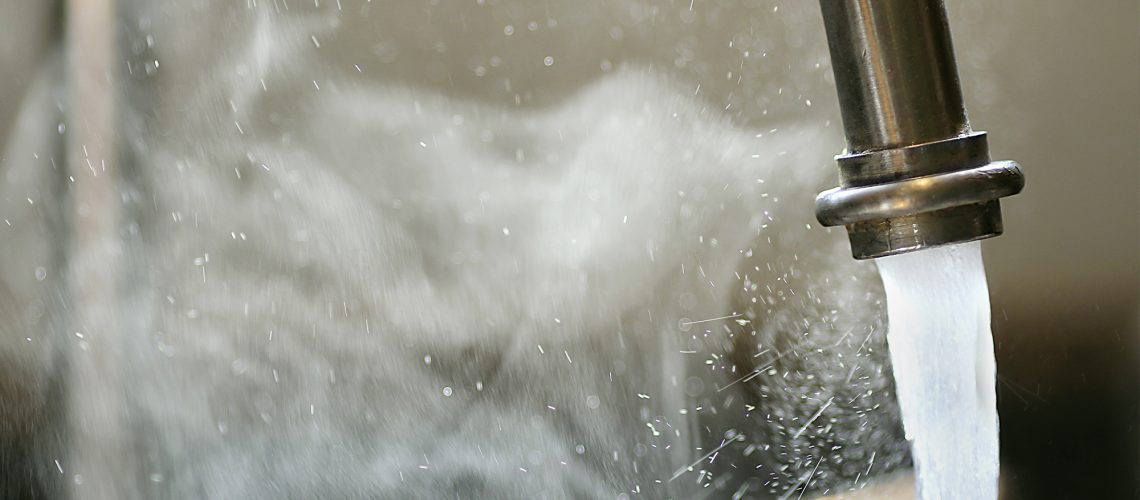Following on from part 1: stored hot water, we examine the other option available: Instantaneous hot water.
Why Do We Have Instantaneous Hot Water?
In the UK, instantaneous hot water is the most common form of producing hot water in our homes. Some of you may remember the single point water heaters that sat above sinks, whilst others may have multi-point water heaters providing your hot water today. The process for these appliances is simple: the water flows into the heater, through a heat exchanger, and out via a built-in tap or to the hot water pipes. A gas burner provides heat to the heat exchanger.
Combination Boilers – All-In-One Option.
Combination boilers make up the vast majority of instantaneous hot water appliances in the UK. One single device that ‘combines’ on-demand hot water and central heating makes sense where space is limited. They are high on efficiency, low on noise, and can be controlled from anywhere in the world! Due to the compact size of the appliance, this solution works well with the average property size in the UK.
How Does The Water Get Hot?
Instantaneous hot water heating appliances use a copper alloy heat exchanger to transfer heat to the domestic hot water in one of two ways. The heat may be direct from gas, which is common in multi-point hot water heaters. Mains water passes through a copper heat exchanger. A gas burner heats the copper heat exchanger. A thermostat controls the water temperature, positioned on the hot water outlet. This ensures a steady flow of hot water and to prevent overheating.
The other method is indirect heating of the hot water, found in the majority of combination boilers. These appliances have two heat exchangers, one for the central heating system water, and a second for heating the water out of hot taps. Once there is a demand for hot water, the combination boiler diverts system water away from the radiator circuit and into the hot water heat exchanger. The heat exchanger is made thin copper alloy plates and divided into two sections. Water from the main heat exchanger passes through one series of plates, whilst the mains water passes through the other plates. These plates act as a barrier between the different types of water to stop them from mixing together. As the plates are made from a copper alloy, the provide excellent thermal conductivity, transferring the heat efficiently.
Does It Work Well In The UK?
Concerns that a combi boiler can perform are justified, as the history of combi boilers isn’t particularly good! The issues are mainly in regards to the hot water flow rate. Fortunately, the combination boilers are able to deliver plenty of hot water. The highest domestic heaters can produce up to 23 litres per minute of hot water, based on an input rating of 54kW. Typically, 24kW – 42kW are common combi boiler options. Some combi boilers have pre-heat functions. Pre-heat functions heat standing water inside the heat exchanger. This prevents a cold ‘dead-leg’ of water. The high efficient design of combi boilers has prompted many homeowners to switch from stored hot water to instantaneous.
The Instant Hot Water Issue
There are downsides to this type of water heating, most notably in cold weather. During the winter months, the mains water entering a property will be much lower than in summer. This means it requires greater amounts of energy to get the water to rise in temperature. Many combination boilers work to a set temperature rise. For instance, the Vaillant Eco-Tec Pro range specifies that the boiler will perform between 9.6 litres/min and 12.3 litres/min based on a 35˚C rise. This is ok when the water is entering the home at 15˚C, as the rise will take it to 50˚C.
The problem lies when the mains water is just above freezing. The boiler will only be able to rise it to about body temperature, which will only feel warm to the touch. By adjusting the flow rate from the outlet down, it increases the temperature but reduces the amount of water. In these conditions, it can affect the quality of a shower or time needed to run a bath. Fortunately, this extreme temperature isn’t common and only affects us for a few days at a time.
Overall, combination boilers are a great choice for homeowners who have modest-sized houses. Contact us today if you would like more information.

